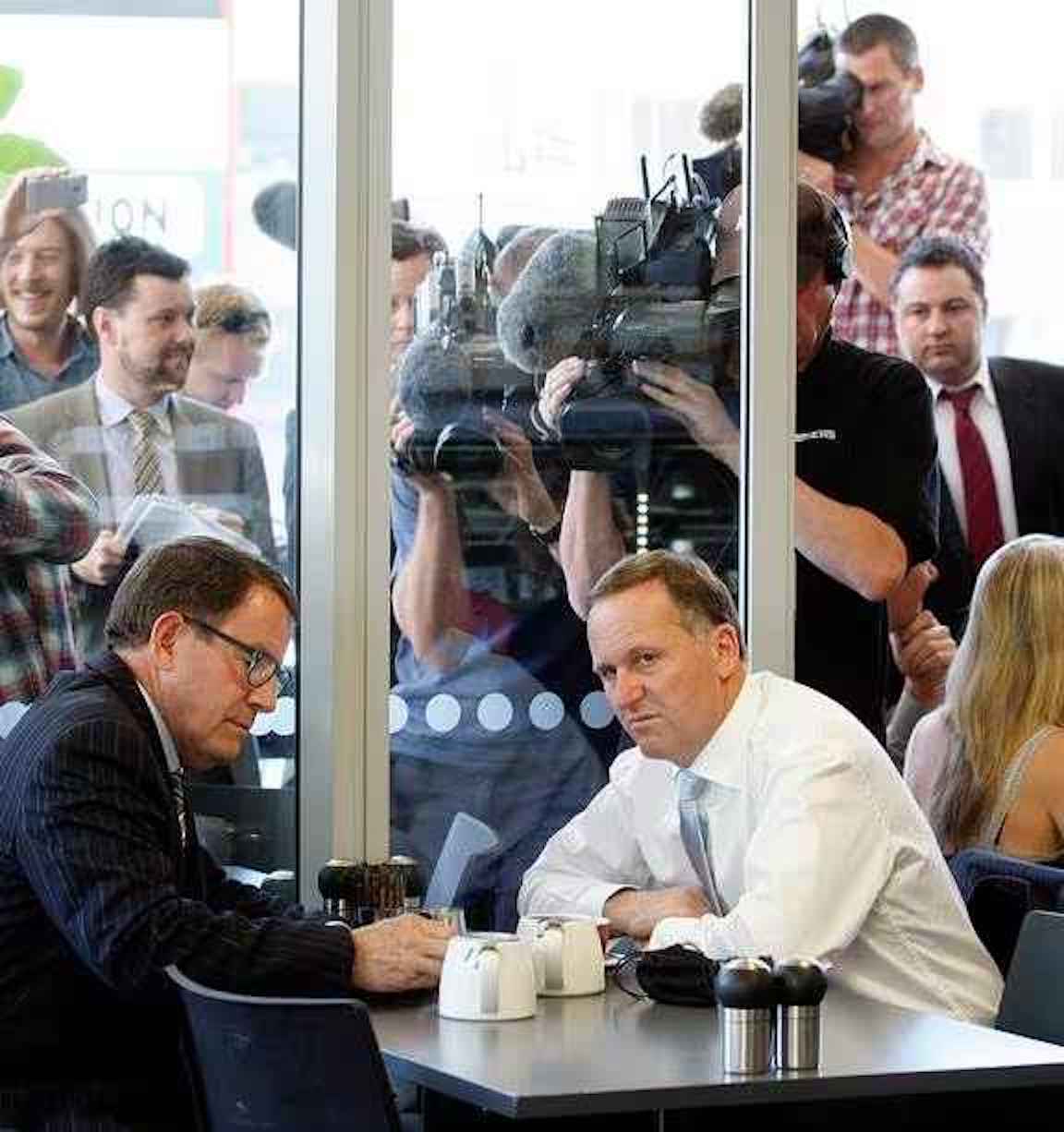Govt to review first TVNZ, then all state-owned enterprises
Opinion: It’s a while ago, but back in 2011 I found myself enmeshed in the so-called Cuppagate row that set the stage for John Key’s return to Government. You may remember.
A freelance camera operator inadvertently left his microphone lying on a café table at the end of a high profile election campaign media stunt, a publicised meeting between Key and the leader of the Act Party, John Banks.
I mention this now, because the ensuing brouhaha taught me an important lesson: that when it comes to the crunch, many in the public trust journalists even less than they trust politicians. I worked for the Herald on Sunday. I obtained a copy of that accidentally-recorded conversation, as did TV3.
Despite the fact that neither the Herald nor TV3 published its contents, we were wrongly accused of deliberately recording a private conversation (to which the entire media had been invited!) and vilified. Many of our readers were upset at us, but Key and Banks and their parties climbed in the polls.
Although the camera operator subsequently sued Key for $1.25m for defamation, and won a confidential payout, that’s not what anyone remembers.
Yesterday, as many among us reeled at the sad news of the proposed closure of Newshub, the country’s biggest privately-owned TV news network, Act’s new leader David Seymour came out firing – against the media.
Specifically, against government-owned TVNZ for investing too much of its revenue in competitive programming, rather than in paying dividends.
The Associate Finance Minister has requested advice on whether TVNZ should start returning a dividend to the government, to help level the playing field. “I think there’s a question mark around whether the government’s ownership of one TV channel and the poor returns it’s demanded as a shareholder has actually contributed to an uncompetitive market.”
I spoke with Seymour this morning. He has delegated responsibility for state-owned enterprises and Crown-owned companies like TVNZ. He reveals the coalition government is embarking on a review of all of them, their return on investment, and the value they do or don’t provide to taxpayers. Why does the Government even own them?
Will this put the sale of TVNZ back on the table? “I haven’t raised that topic with any other minister or discussed it, but I’m just requesting information from the Treasury so I’m informed for a debate that may or may not happen.
“Act’s views about the role of the government owning commercial companies are hopefully pretty widely known. Act would say that the SOE model is a creature of its time in the 1980s, designed to solve a different set of problems from from what we may face now.”
Now, don’t get me wrong, TVNZ’s return on investment is actually a very legitimate question. Indeed, past and present bosses at TV3 and Newshub have raised similar questions about having to compete for advertising dollars against an effectively state-subsidised broadcaster. If TVNZ is to reap the benefits of not paying dividends, they’ve argued, then it should operate as an ad-free public broadcaster.
For what it’s worth, TVNZ previously paid dividends, but the Key Government agreed in 2013 that in return for relinquishing an old office block to make space for the new International Convention Centre next door, the broadcaster could pause dividends and reinvest the money in refurbishing its Auckland studios and in digital transformation. Since then, it has only paid dividends in 2016 ($13m) and 2021 ($15m).
But the fact that Seymour should respond to one cash-strapped news organisation’s planned closure by (seemingly) proposing to dip into the balance sheet of another cash-strapped news organisation – that tells me something.
The public don’t love and trust journalists as much as we in the trade sometimes think they do, and are in no hurry to rush to our rescue. Cuppagate showed us that. And Seymour clearly knows that.
The fact is, any media organisation like TV3 or TVNZ that relies too heavily on glitzy, high-priced brand advertising will be suffering right now. Subscription models like that operated by Newsroom (and of course by daily newspapers) will help, but will never fully fund big broadcasters in the manner to which they’re accustomed.
To that extent, scale may be less of an advantage in news media than it is in other industries. We don’t manufacture widgets that can be made and shipped cheaper in bigger numbers; we distribute our product online and there are fewer economies of scale there. Hence the media’s increasing fragmentation.
Since the advent of the internet and social media, advertisers need no longer be joined at the hip with news media. Indeed, it’s little more than a historical quirk that newspapers started carrying advertising, once upon a time three centuries ago, and journalism became reliant on that to pay its bills.
The Prime Minister and the Act leader both made it abundantly clear yesterday that the taxpayer will not ride to the rescue of the media business model, not under this administration. And big, broadcast, brand advertising is dying, to the detriment of Newshub, TVNZ and other free-to-air broadcasters.
Indeed, TVNZ has been quietly laying off a large swathe of its middle management – and it will be in even deeper financial trouble if it’s asked to resume paying annual dividends to the Government.





